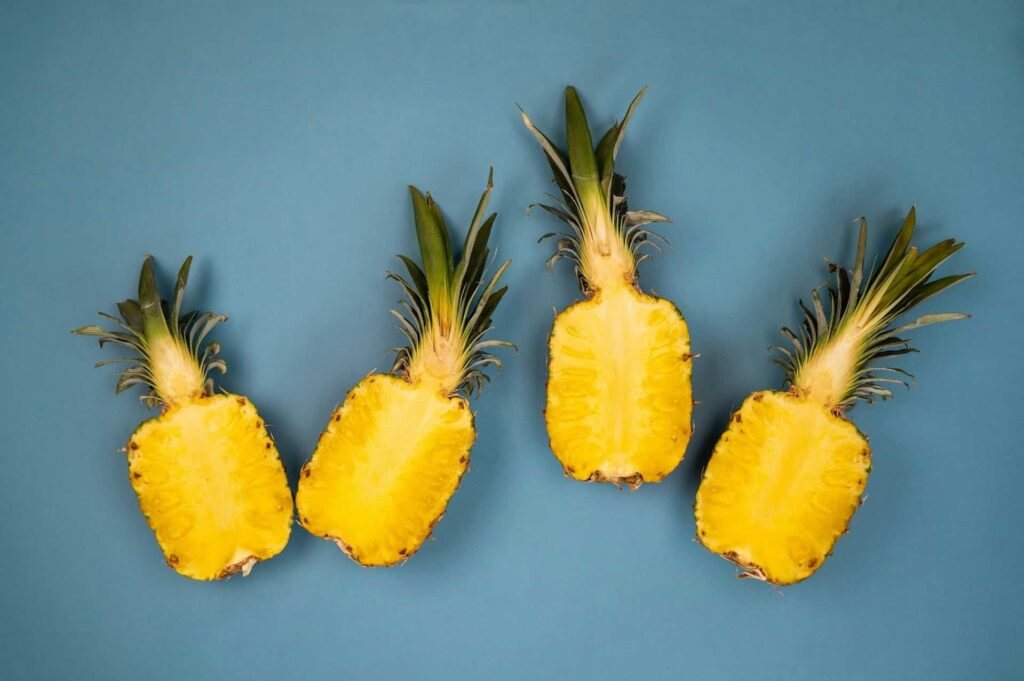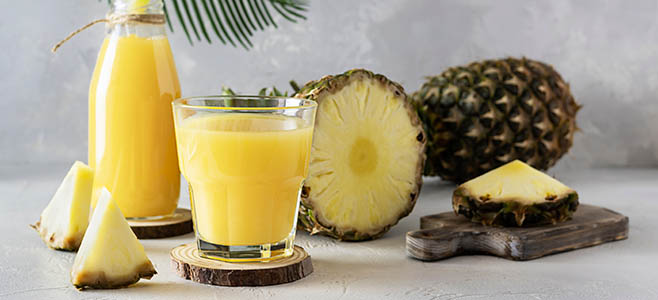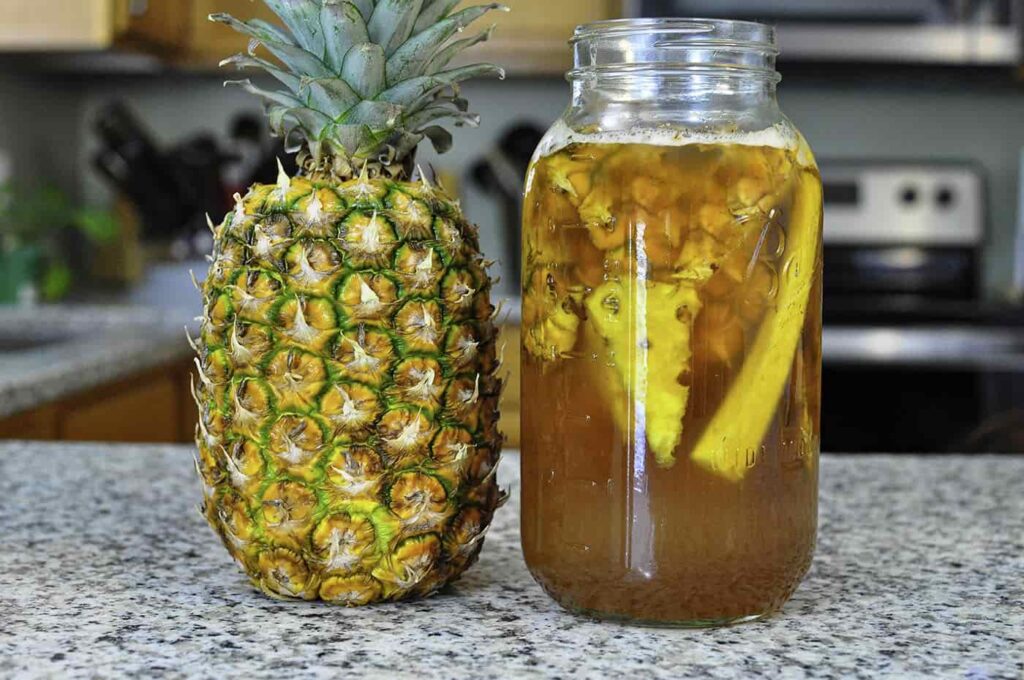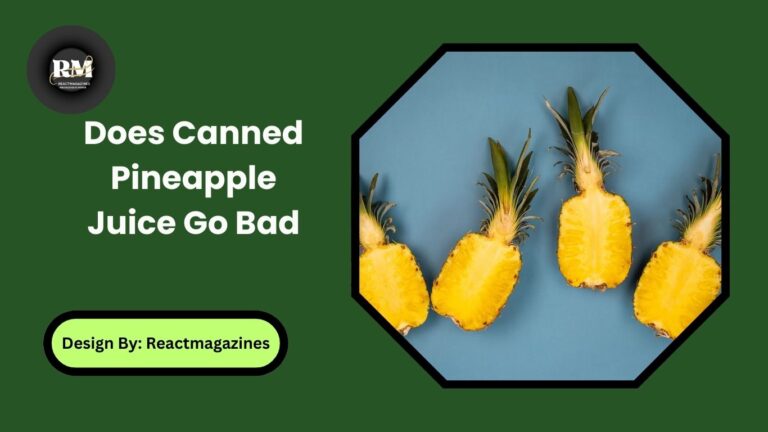How To Tell If Pineapple Juice Is Bad – Complete Guide!
Pineapple juice can go bad, showing sour smell, color change, mold, or fizz. Proper storage and checking for spoilage signs help ensure freshness, flavor, and safety before drinking.
Pineapple juice is a tropical favorite loved for its sweet yet tangy flavor. But like any perishable drink, it has a shelf life, and consuming it past its prime can be unsafe. Knowing how to check if pineapple juice is spoiled is essential for both flavor and health.
This guide explains spoiled pineapple juice signs, the pineapple juice expiration date, safe storage practices, and how to identify changes in smell, taste, and appearance.
Understanding Pineapple Juice Shelf Life
The pineapple juice shelf life depends on whether it’s fresh, bottled, or canned.
- Fresh pineapple juice safety Lasts about 3–5 days in the refrigerator if stored properly.
- Bottled juice (unopened) Can last several months past the printed date if stored in a cool, dry place.
- Canned pineapple juice storage Unopened cans can last up to a year, but once opened, use within 5–7 days.
Proper storage directly affects how long pineapple juice lasts, and poor handling can shorten this time dramatically.
Spoiled Pineapple Juice Signs

Identifying signs pineapple juice has gone bad helps prevent foodborne illness. Common indicators include:
- Sour smell in pineapple juice Fresh juice smells sweet and fruity; spoiled juice develops a strong, unpleasant sour or fermented odor.
- Pineapple juice color change Healthy juice is golden yellow; spoiled juice may turn brownish or cloudy.
- Changes in pineapple juice taste and texture A bitter or tangy taste and thick, slimy texture are signs of spoilage.
- Mold in pineapple juice Even small mold spots mean the juice should be discarded immediately.
- Excessive fizz or bubbling May indicate fermented pineapple juice, caused by bacteria or yeast growth.
Effects of Expired Pineapple Juice on Health
Can bad pineapple juice make you sick?
Yes, drinking expired or contaminated juice can cause:
- Stomach cramps
- Nausea and vomiting
- Diarrhea
- Food poisoning symptoms in severe cases
The effects of expired pineapple juice vary depending on how spoiled it is, but avoiding it altogether is the safest choice.
What Does Bad Pineapple Juice Smell Like?
The easiest way to detect spoilage is through smell. Fresh juice has a sweet, tropical aroma, while spoiled juice develops:
- A sharp, acidic scent
- An alcohol like smell (indicating fermentation)
- A musty or unpleasant odor
If you notice any off smells, it’s a strong sign you shouldn’t drink it.
Is Cloudy Pineapple Juice Safe to Drink?

A little natural cloudiness can be normal, especially in unfiltered fresh pineapple juice. However:
- Cloudy pineapple juice is safe to drink If freshly squeezed and consumed quickly, some sediment is fine.
- Unsafe cloudiness If the juice has been stored for days and cloudiness is accompanied by odor, color changes, or fizz, it’s unsafe.
How to Store Pineapple Juice for Maximum Freshness?
Following the right pineapple juice storage tips can prevent early spoilage.
For Fresh Juice
- Store in an airtight glass container.
- Refrigerate immediately after juicing.
- Keep at 4°C (39°F) or below.
For Bottled or Canned Juice
- Keep unopened juice in a cool, dry pantry.
- After opening, refrigerate promptly.
- Use clean utensils when pouring to avoid juice contamination signs.
Pineapple Juice Expiration Dates – What They Mean?
The pineapple juice expiration date or “best by” label isn’t a strict safety deadline but a quality guide.
- Before the date The juice retains its best taste and nutrients.
- After the date It may still be drinkable if stored well, but check for spoilage signs before consuming.
Fermented Pineapple Juice – Good or Bad?

Sometimes, pineapple juice intentionally ferments into drinks like tepache. But accidental fermentation in stored juice means spoilage.
Signs include:
- Fizzy texture
- Alcohol like smell
- Sour taste
Unless you’re fermenting juice intentionally under safe conditions, discard it immediately.
Quick Checklist – How to Check if Pineapple Juice Is Spoiled?
- Smell Sour, alcoholic, or foul odor? Discard it.
- Look Color change, cloudiness, or mold? Throw it away.
- Taste Bitter, tangy, or unusual? Stop drinking immediately.
- Texture Thick, slimy, or fizzy? Unsafe to consume.
- Expiration date Past date + bad signs? Avoid.
FAQs:
1. Can you drink pineapple juice past its expiration date?
Yes, but only if it’s stored properly and shows no spoilage signs like sour smell, mold, or color change. Always check freshness before consuming juice beyond its printed date.
2. How long does fresh pineapple juice last in the fridge?
Fresh pineapple juice typically lasts 3–5 days when refrigerated in an airtight container. After that, quality and safety decline, so it’s best to consume within this short period.
3. What happens if you drink spoiled pineapple juice?
Drinking spoiled pineapple juice may cause nausea, diarrhea, stomach cramps, or food poisoning symptoms. Always check smell, color, and taste before drinking to avoid health risks from contamination.
4. Why does pineapple juice sometimes become fizzy?
Fizziness usually means fermentation, caused by yeast or bacteria breaking down sugars. While intentional fermentation can be safe, unexpected fizz in stored juice means spoilage and it should be discarded.
5. Is cloudy pineapple juice always unsafe?
No, slight natural cloudiness can occur in fresh, unfiltered juice. However, if cloudiness appears alongside sour odor, color change, or fizz, it’s a sign of spoilage and should not be consumed.
Conclusion:
Pineapple juice is best enjoyed fresh, but it can spoil quickly if not stored correctly. Recognizing signs like sour smell, color changes, mold, or unexpected fizz helps protect both flavor and health. Fresh juice should be refrigerated immediately, kept in airtight containers, and consumed within a few days. Bottled and canned juice also require proper handling once opened. When in doubt, it’s always safer to discard questionable juice rather than risk illness. Smart storage and regular checks ensure safe, delicious pineapple juice every time.






